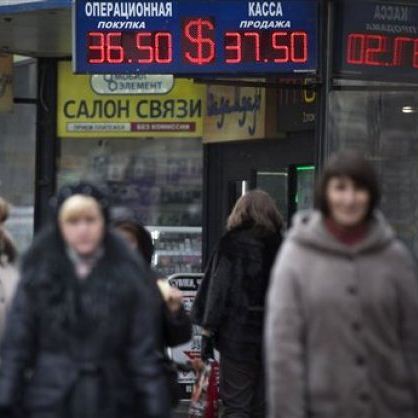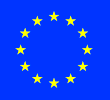President Obama and his European Union allies have been criticized for the weakness of their response to the Russian military intervention in Crimea. The G-7 officially condemned Putin for violating Ukrainian sovereignty and the U.N. Charter, the Obama administration has threatened visa and asset freezes against top Russian officials, and the E.U. will meet next week to discuss the possibility of targeted sanctions. But so far all that has happened, beyond harsh criticism, is a call to reschedule the upcoming G-8 summit meeting in Sochi, alongside the cancelling of U.S.-Russia military-to-military programs and some routine low-level trade meetings.
Sanctions would probably not do much to hurt direct Russian economic interests, given the dependence of many E.U. countries on Russian gas imports and the absence of any key economic levers in Europe or North America. Yet the sanctions threat could still have a negative impact on Russian President Vladimir Putin in an indirect way, by contributing to instability among the elite clans who vie for control over Kremlin policy.
Western pundits have a tendency to equate “Putin” with “Russia,” seeing their interests as one and the same. But Putin does not rule alone. Instead he sits at the top of competing informal network groups who vie against each other for political power, in a Kremlin game that Philip Hanson has likened (in an edited scholarly volume) to “dogfights under a carpet.” Putin’s political longevity is testament to his skill in balancing and managing this network competition, as Henry Hale recently argued. Putin built his reputation on maintaining political and economic stability in Russia, replacing the chaos of the immediate post-Soviet years with order and predictability—and that means containing the dogfights. If elite battles break out into the open it will be a sign of Putin’s weakness, and will likely lead contenders to emerge to challenge him.
Unchecked competition between two broad networks in particular might hamper Putin’s reign. Alena Ledeneva calls one of these groups the “Orthodox Chekists.” This group has strong ties to the conservative nationalist leadership of Moscow’s Russian Orthodox Church, as well as to the former Soviet KGB and current Russian FSB intelligence services (of which Putin was a leading member). Its influence has been on the rise ever since Putin regained the presidency in 2012. The second group might be called the “economic internationalists.” It includes economists and business leaders who understand that Russia’s long-term health depends on further privatization, diversifying output away from petroleum products and other raw materials, and integrating the country into the broader global economy. Some in this latter group have been sidelined from the Kremlin; former Finance Minister Alexei Kudrin, for example, is now a dean at St. Petersburg State University after falling out with the leadership in 2011 over Putin’s planned return to the presidency. But political survivors remain among its ranks, including First Deputy Prime Minister Igor Shuvalov, the lead negotiator for Russia’s World Trade Organization membership who recently called for expanding US-Russian trade.
The fact that Putin’s military intervention into Crimea has caused shock and dismay among so many leaders of the world’s largest economies—not merely those from the G-7 and the E.U., but also, for example, Turkey (a major Russian trading partner that controls the Bosphorus and Dardanelles straits through which all Crimean shipping must pass)—must appall Russia’s economic internationalists. Even China has reaffirmed its support for Ukrainian sovereignty, while being careful not to directly criticize Russia (Beijing trades significantly with both countries). Whatever the immediate fallout for the Russian economy might be, over the long run Putin’s actions have damaged international trust, and will add to political risk concerns about future investment in Russia.
Furthermore, the domestic network repercussions of Putin’s actions will not occur in a political vacuum. Many Russians already felt intense displeasure about the corruption and wasted state resources involved in the construction of the Sochi Olympics sites. While detailed and documented accusations have come only from minority opposition politicians like Boris Nemtsov and Alexei Navalny, a poll by the respected Russian Levada organization found that almost half of all Russians believe the allegations are true. A documentary film making similar claims, “Putin’s Games,” played to a sold-out theater in Moscow in December, despite the efforts of at least some Kremlin authorities to quash it. Even International Olympic Committee member Gian-Franco Kasper suggested that Russian big businessmen had siphoned off up to a third of Sochi’s $50 billion budget—leading one of those businessmen, Vladimir Yakunin of the Russian Railways Corporation, to call him “a slanderer” who should be “judged according to the law.” (Yakunin, incidentally, was identified in Ledeneva’s book as a leading member of the Orthodox Chekists.) Sergei Guriev, a leading Russian economist who was pressured to leave the country last year, argues that the Russian economy is in a period of stagnation primarily because of corruption. Presumably the economic internationalists are listening to him.
Putin may not have to worry much about the views of the Russian public, especially as he increasingly clamps down on all dissent. Populist nationalism may indeed cheer Putin on in his Crimean venture. Yet keeping a lid on elite network infighting in Russia will get even harder, if swirling accusations about Sochi are magnified by sanctions dampening Russia’s chances for economic diversification and integration. Putin’s rashness may come home to haunt him inside Kremlin walls.
See the original post © The Monkey Cage










